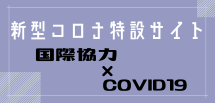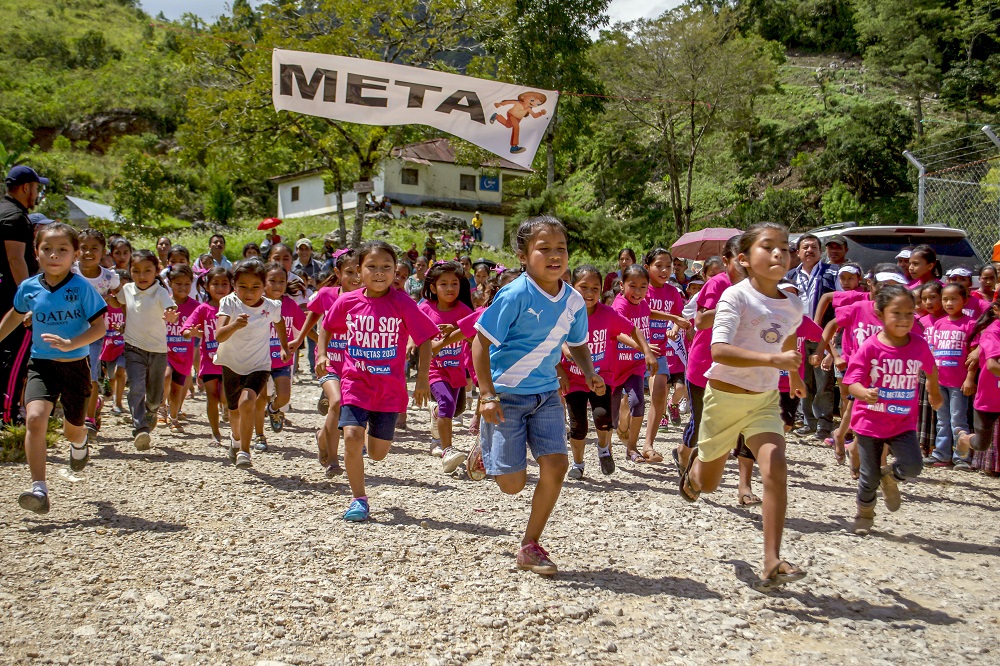IDJ ENGLISH International cooperation connecting people with strong ties
International cooperation connecting people with strong ties
Strengthening health and medical sector cooperation and human resource development
Interview with Shinichi Kitaoka, President of JICA
The spread of COVID-19 continues. For the Japan International Cooperation Agency (JICA), the need for health sector cooperation has been increasing around the world. On the other hand, when you look at Japanese society, JICA's experience is more and more required in many fields including response for accepting foreign human resources. How will JICA respond to these changes? Dr. Shinichi Kitaoka, President of JICA, spoke out. (Interviewed by Mitsuya Araki, Editor-in-chief of IDJ)
Contributing to the strengthening of health and medical sector cooperation
―JICA's operation has been exposed to headwinds due to the COVID-19 pandemic.
The essential part of JICA's operation is face-to-face communication on the ground in developing countries. The spread of COVID-19 has forced us to drastically reduce overseas travel and has largely affected our usual operation. In order to ensure safety of our personnel, JICA decided in March 2020 to repatriate all Japan Overseas Cooperation Volunteers (JOCV) who had been dispatched abroad. From April to early May 2020, most of Japanese officials, except managerial and essential staff, of our overseas offices returned to Japan. There were difficulties such as traffic halting and border closure, but with the efforts of all the staff at home and abroad, we managed to accomplish the operation.
―On the other hand, the need for health care is increasing, especially in developing countries. What kind of cooperation will you develop in the future?
At the beginning of the spread of COVID-19, it is difficult to say that Japan was able to cooperate quickly with developing countries on measures against COVID-19. In July 2020, we launched “the JICA’s Initiative for Global Health and Medicine.” This initiative aims to establish a resilient and durable system of developing countries to respond to infectious diseases in order to protect people's lives and health. Specifically, we will focus on strengthening the following three essential parts of health and medical sector: prevention, precaution, and treatment. Looking back, JICA has done a series of unique and outstanding activities in prevention field, such as the introduction of Maternal and Child Health Handbook and the encouragement of hand washing.
Japan has long overseas experience in improving the aspect of treatment. For example, Shinpei Goto built hospitals in Taiwan and Manchuria in the early 20th century to promote health of the local people. Building on these experiences, now JICA is promoting cooperation to build and expand hospitals that people can rely on. The goal is to develop health care systems with such hospitals at about 100 locations around the world. In addition to facilities, we are also working on human resource development and introducing remote intensive care units (ICU) using digital technology as a package. These efforts will strengthen self-sustaining response capabilities to future health crises and will contribute to the realization of "human security," which is the most important pillars of JICA's mission.
Providing courses to learn about Japan in developing countries
―Many foreign residents in Japan have lost their jobs due to the spread of COVID-19. JICA has begun efforts to accept foreigners, but what measures will be taken?
In November 2020, JICA established “the Japan Platform for Migrant Workers toward a Responsible and Inclusive Society (JP-MIRAI)” with the Global Alliance for Sustainable Supply Chain (ASSC). JP-MIRAI aims to facilitate communication with foreign workers residing in Japan, disseminate easy-to-understand information on portal sites specifically for them, and grasp problems they face to seek a solution. JICA serves as a joint secretariat with ASSC and is working with a number of leading Japanese companies.
JP-MIRAI was founded because foreign workers faced language and cultural difficulties in Japan. I thought that JICA is the only organization that has the capability to reach out. At the end of 2019, I told then-Chief Cabinet Secretary, the current Prime Minister, Yoshihide Suga, "We want to do it for our country," and he promised to give a strong support for us. We think this is the last opportunity for Japan to become the "country of choice" for foreigners, and are working with the Immigration Services Agency of the Ministry of Justice to support foreign workers in Japan.
―What is the prospect of human resource development in developing countries?
We will continue to promote “JICA Development Studies Program (JICA-DSP),” which was launched in 2018. The purpose of this program is to provide international students who will become leaders in developing countries in the near future to learn both the experience of Japan's modernization and post-war recovery, and its knowledge as a postwar donor country, and to make use of it for its own development. Now that we are on track, we have also started “JICA Program for Japanese Studies (JICA Chair)” in an attempt to provide opportunities for students to study about Japan at leading universities in developing countries. In this program, a hub for Japanese studies (JICA Chair) will be established, where students will be provided with courses to systematically learn the experiences and lessons learned from Japan's modernization. Specifically, classes using DVDs of the lecture program "Seven Chapters on Japanese Modernization," which was co-produced with the Open University of Japan, will be held, as well as on-site classes by dispatching top-notch lecturers from Japan. In chapter 1 of this program, I gave a lecture about the Meiji Revolution, which was the starting point of the Japan’s modernization. I also produced a chapter on modern Japan and the wars in order to talk about Japan's failures without concealing them.
In Brazil, in December 2018, we signed an agreement with the Faculty of Law of the University of São Paulo, which has implemented a program titled "Fujita-Ninomiya Chair." The late Ambassador Edmundo Susumu Fujita was the first Japanese-Brazilian diplomat; and Dr. Masato Ninomiya is a lawyer and professor at the University of São Paulo's School of Law; both are well-known figures in Brazilian society. This chair offers courses to study about Japan, and those with excellent grades are given the opportunity to study in Japan. The number of countries adopting the JICA Chair program has been expanding, including Jordan with online courses in response to the request from His Majesty King Abdullah II.
In Rwanda, after meetings with President Paul Kagame, including one at the 7th Tokyo International Conference on African Development (TICAD7) in 2019, a plan to hold short-term intensive lectures at the National University of Rwanda quickly progressed.
The JICA chair program started with the hope that people would get to know more about Japan. Through this program, they will be interested in Japan. I would also like to create a virtuous cycle in which students can study in Japan and continue to be interested in Japan at universities in their home countries. I would like many people, including researchers, government officials and politicians, to continue to engage with Japan through intellectual activities at the JICA chair.
Cooperation on Disaster Risk Prevention with Southeast Asian Countries
―How do you look at the Suga Administration’s “Free and Open Indo-Pacific (FOIP)” as one of its diplomatic strategies? What kind of international cooperation can be made in the context of FOIP?
I'm in favor of promoting FOIP. However, I think that it’s wrong to perceive FOIP as the siege to China. The United States may press Southeast Asian countries to choose between "teaming up with the United States or China," but instead of such an approach, I think Japan should proceed with the formation of a regional coalition or "Western Pacific Union," that is, a loose solidarity with ASEAN member states, at least with major members such as Indonesia, the Philippines and Vietnam. While the formation of a regional coalition should be discussed at the government level, JICA wants to build solid relationships as its foundation.
We may be able to cooperate in the field of disaster prevention. For example, Indonesia and the Philippines, like Japan, are at high risk of natural disasters. We will discuss with member countries how to protect their citizens from earthquakes and typhoons, and build cooperative relationships. In addition, through student exchange program and medical cooperation, I would like to strengthen ties between people and deepen the relationships.
―To summarize today’s story, I think the theme will be "Kizuna (bond)". JICA's initiatives are based on human-centered ideas.
Our task is to contribute to the development of developing countries. And with that, I want people in developing countries to trust Japan. The preamble of the Constitution of Japan states, "we desire to occupy an honored place in an international society," and JICA's efforts are consistent with this spirit.
In recent years, JICA has also played a part in implementing the Japanese government's “Infrastructure Systems Export Strategy.” Investing in large infrastructure such as railways and ports is certainly important, but when the loan repayment periods ends, the relationship with a partner country could also end. Experiences such as "I went to Japan in the past and people there have been kind to me" will strongly remain in each person's mind. In addition, Japanese people have the nature to recognize others as peers rather than looking down on them, and establish an equal relationship. JICA will continue to promote activities that connect people with strong ties.
―Finally, could you send a message to young people who will be responsible for international cooperation in the future?
Before becoming president of JICA, I taught at the University of Tokyo and other several universities for many years. I always told my students "Be at bat," and I quite often asked them, touching upon some important policy issues, “how do you decide if you were a prime minister?” Their opinions were sometimes off the point, but if you don't accumulate experience thinking for yourself, your ideas won't come out clearly in case of need. I want you to keep asking yourself as if you were the one responsible for a matter. In addition, in November 2020 we began to re-dispatch some members of JOCV, who had returned to Japan in March 2020, starting from Vietnam. We are gradually expanding re-dispatch to other countries. Since as many as 80% of the returned JOCV hope to be re-dispatched, we will make every effort to realize it. Face-to-face cooperation is also restarting in this way. I hope you will join us without hesitation. I want you to work together with us to open up the future of developing countries and Japan.
“International Development Journal” August edition, 2021
*****以下、日本語原文*****
人と人を絆でつなぐ国際協力 保健医療協力と知日派育成の強化を
国際開発ジャーナル4月号
北岡伸一JICA理事長インタビュー
新型コロナウイルスの感染拡大が続き、国際協力機構(JICA)には保健医療分野の協力ニーズが世界で高まっている。一方、国内に目を向けると外国人受け入れへの対応など、JICAの経験が必要とされる場面はこれまで以上に増えている。こうした社会情勢の変化にJICAはどう対応していくのか。北岡伸一理事長に聞いた。(聞き手:本誌主幹・荒木 光弥)
保健医療協力の強化で貢献
―新型コロナウイルスの感染が続き、JICAの事業も逆風に晒されています。
JICAの事業は諸外国と行き来することなしには不可能だが、新型コロナの感染拡大で海外渡航を大幅に縮小せざるを得ず、大きな打撃を受けた。JICAは安全確保の観点から、派遣中の海外協力隊員について、2020年3月に全員引き揚げを決定した。4月から5月初旬にかけては在外事務所の日本人スタッフも一部を除いて帰国させた。交通が止まったり、国境が閉鎖されたりするなどの困難はあったが、国内外の全スタッフの尽力があって何とか乗り切った。
―一方で開発途上国を中心に保健医療分野のニーズは高まっています。これから、どのような協力を展開していくのでしょうか。
新型コロナの感染拡大当初、日本は新型コロナ対策に関する開発途上国への協力が迅速にできたとは言い難い。巻き返しを図ろうと、20年7月に打ち出したのが「JICA世界保健医療イニシアティブ」だ。このイニシアティブでは、人々の命と健康を守るため、一過性のものではない、途上国も含めた世界の感染症への対応力の強化を目指している。具体的には、予防・警戒・治療の強化に注力していく。
これまでの保健医療分野への協力を振り返ると、JICAは母子手帳の導入や手洗いの励行など、予防の面で世界のどこにも負けない協力を展開してきた。治療の面においては、日本には長い伝統がある。古くは戦前に後藤新平が台湾や満州で病院を建設し、現地の人々の健康増進に貢献した。JICAはこうした経験も踏まえ、現在、現地の人が安心して通える病院の建設・拡充に向けた協力を推進している。このような病院を核とする保健医療システムの整備を世界約100カ所で行うことを目標にしている。施設だけではなく、人材育成とセットにし、デジタル技術を活用した遠隔集中治療室(ICU)支援の導入にも取り組んでいる。将来の健康危機への自律的な対応能力の強化につながるこれらの協力はJICAのミッションでもある「人間の安全保障」の実現に資するだろう。
途上国で日本を学ぶ講座を提供
―新型コロナの感染拡大に起因して、多くの在留外国人が職を失っています。JICAは外国人受け入れに関する取り組みを始めていますが、どのような対策を打ち出すのでしょうか。
2020年11月、JICAはザ・グローバル・アライアンス・フォー・サステナブル・サプライチェーン(ASSC)と「責任ある外国人労働者受入れプラットフォーム」(JP-MIRAI)を設立した。JP-MIRAIは、在留外国人労働者とのコミュニケーションの強化、具体的には彼らを対象としたポータルサイトにおいて、分かりやすい情報発信をするほか、彼らが直面する問題を把握し、解決を目指す。JICAは、ASSCと共同事務局を務め、日本を代表する数々の企業から協力を得て取り組みを進めている。
JP-MIRAIの設立に至ったのは、外国人労働者が言語や文化などの面で困難に直面していたからだ。私は「手を差し伸べる能力を持っているのはJICAしかいない」と考え、19年末に当時の菅義偉官房長官に「お国のためにやりたい」とお伝えした。日本が外国人に“選ばれる国”になる最後のチャンスと捉え、法務省出入国在留管理庁とも連携し、在留外国人労働者の支援に取り組んでいる。
―途上国の人材育成の展望はいかがですか。
2018年に開始した「JICA開発大学院連携事業」を引き続き推進する。この事業は近い将来途上国のリーダーとなる留学生に、日本の近代化の経験と、戦後の援助実施国としての知見の両面を学んでもらい、自国の開発に生かしてもらうことを目的としている。軌道に乗ってきたので、日本を学ぶ機会を途上国の大学でも提供しようと、「JICA日本研究講座設立支援事業」(JICAチェア)も開始した。この事業では途上国の大学に日本研究の拠点を設置し、そこで日本の近代化の経験や教訓を体系的に学ぶ講座を学生に提供する。具体的には、放送大学と共同制作した講義番組「日本の近代化を知る」のDVDを用いた授業を現地の大学で行うほか、日本から一流の講師を派遣して出張授業も実施する。同番組の第一章では、近代化の原点となる明治維新について、私自らが講義している。日本の失敗も包み隠さず話そうと、戦争をテーマとした章も制作した。
ブラジルでは、18年12月にサンパウロ大学法学部と取極めを締結し、「フジタ・ニノミヤチェア」と題したプログラムを実施している。フジタ氏は日系人初の外交官、ニノミヤ氏は弁護士でサンパウロ大学法学部の教授でもあり、ブラジル社会で著名な方だ。同学部では日本を学ぶ講座が提供されているほか、成績優秀者には日本への留学の機会が与えられる。
実施国はさらに広がり、ヨルダンではアブドッラー2世国王陛下の要望に応える形で、同国内でオンライン講座が開講された。ルワンダでは、19年の第7回アフリカ開発会議(TICAD7)の機会など、複数回ポール・カガメ大統領と面談したのをきっかけに、国立ルワンダ大学で短期集中講義を実施する計画が迅速に進んだ。
JICAチェアは「日本のことをもっと知ってほしい」という思いからスタートしている。本事業を通して、日本に興味を持ってもらう。そして、日本に留学し、さらに帰国した後も母国の大学などで日本への関心を持ち続けてもらうというような好循環を創っていきたい。研究者に限らず、行政官や政治家など、多くの人がJICAチェアを拠点として日本との関わりを持ち続けてほしい。
東南アジア諸国と防災協力を
―菅政権は外交戦略の一つに「自由で開かれたインド太平洋」(FOIP)を掲げていますが、FOIPをどう見ていますか。またFOIPの文脈でどのような国際協力ができるでしょうか。
私はFOIPの推進に賛成だ。しかし、対中国包囲網の側面を、あまり強調すべきではないと考えている。米国は東南アジア諸国に「米国と組むか、中国と組むか」の二者択一を迫る可能性もあるが、そういったアプローチではなく、日本は東南アジア諸国連合(ASEAN)加盟国、少なくとも主要国であるインドネシア、フィリピン、ベトナムなどと、緩やかに連帯する地域連合、すなわち「西太平洋連合」の形成を進めていくべきではないか。地域連合の結成は政府が主導すべきものだが、まずはJICAとして土台となる関係を作っていきたいと考えている。
具体的な取り組みとしては、防災分野での協力ができるのではないか。例えば、インドネシアやフィリピンは日本と同様に自然災害のリスクが高いが、地震や台風からどう国民を守っていくのかを加盟国と議論して、協力関係を築いていくのだ。このほか、相互留学や医療協力を通して、人と人の絆の強化や心の触れ合いを重視した関係も構築できるようにしたい。
バッターボックスに立て
―今回の話を総括すると「絆」がテーマになると思います。JICAの取り組みには人間中心的な発想が顕著ですね。
われわれの任務は「途上国の発展に貢献すること」だ。そして、それをもって、途上国の人々に日本を信頼するようになってほしい。日本国憲法の前文には「国際社会において、名誉ある地位を占めたいと思ふ」とあり、JICAの取り組みは、この精神と合致している。
近年は日本政府によるインフラ輸出の方針に則り、JICAもその一翼を担ってきた。鉄道、港湾などの大型インフラの重要性は確かに高いが、借款の返済が終了すると、そこで縁が切れてしまいかねない。それよりは「過去に日本に行って、周囲の人たちが親切にしてくれた」といった経験の方が、より個々人の心に残るのではないか。また、日本人は人と付き合うときに、上から目線ではなく仲間と認めて対等な関係で付き合っていく気質がある。JICAはこれからも人と人との絆でつないでいく事業を展開していきたい。
―最後に国際協力をこれから担っていく若者に対するメッセージをお願いします。
JICAの理事長になる前は東京大学などで長年教えてきた。私のゼミでは「バッターボックスに立て」をモットーとし、「君が総理大臣だったら、どう判断するか」とゼミ生によく尋ねていた。いささか的外れな意見が出ることもあったが、自分で思考する経験を積み重ねないと、いざという時に自分のアイデアがクリアに出てくるようにはならない。自分が責任者になったつもりで思考する訓練を積み重ねてほしい。
また、昨年3月より帰国させていたJICA海外協力隊は11月からベトナムを皮切りに再派遣が始まった。他の国へも徐々に再派遣を拡大している。再派遣を希望する協力隊員は8割に上ると聞いており、それを実現できるよう尽力する。このように対面型の協力も再開に向けて動いているので、今後も物怖じせずにこの世界に入ってきてほしい。われわれと一緒に途上国と日本の未来を切り開いてほしい。
『国際開発ジャーナル』2021年4月号 掲載記事



